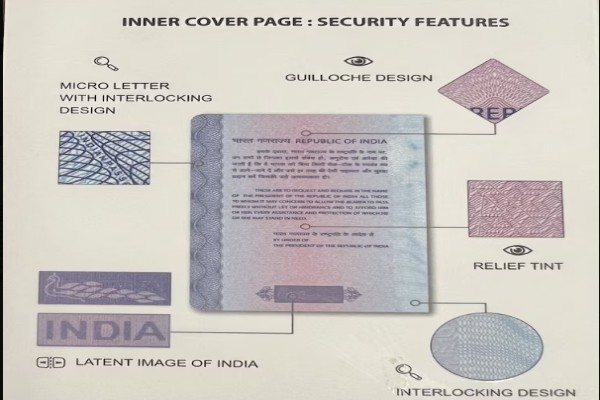India’s transition to electronic passports has reached a major milestone, with officials confirming that over 80 lakh e-passports have been issued within the country since May 2025, alongside 62,000 issued by Indian missions abroad. The Ministry of External Affairs (MEA) said the shift is now fully operational for all applicants.
“Every citizen who is applying for a new passport or renewal will now receive an e-passport. Since 28 May 2025, all passports issued in India are e-passports,” said DS Mubarak, Joint Secretary (Consular, Passport and Visa).
A New Verification System
According to officials, the upgrade marks a fundamental shift in identity validation.
“Version 1.0 captured biometrics; Version 2.0 compares the live biometric data of the applicant with the data already available in the system, making impersonation and fraud almost impossible,” Mubarak said.
Arun Kumar Chatterjee, Secretary, CPV/OIA, added that documentation burdens have dropped while scrutiny has tightened. The system now cross-checks demographic information as well, making fraudulent passports significantly harder to obtain.
Chip, Standards and Security Architecture
Each e-passport includes an RFID chip on the last page containing demographic and biometric data in secure, read-only memory. “The RFID cannot be tracked. It operates only when being machine-read,” Chatterjee clarified.
Officials said the chip and its operating system—developed in India—completed a year-long composite certification process to meet international norms. More than 100 countries can already read Indian e-passports.
Under PSP Version 2.0, the system now uses seven layers of security and three geographically separated data centres in Noida, Chennai and Bengaluru. “In case of failure of one data centre, the other two are there,” an official said.
India issues nearly 50,000 passports a day, and counter time has fallen from 45 minutes to about 30 minutes.
Validity and Services
Existing non-electronic passports remain valid. “Up to 2035, all existing ordinary passports will continue to be accepted. There is no need for premature replacement,” Mubarak said.
The MEA is also expanding coverage so that every Lok Sabha constituency is served by a Passport Seva Kendra or Post Office PSK; only 32 constituencies still lack one. Applicants will now receive mobile alerts eight months before passport expiry.
The Trusted Traveler Program for verified frequent travelers is set to expand.
Ownership and Costs
Under the new Master Service Agreement, all infrastructure and data belong to the government. “We own the data, and we own all the assets,” Chatterjee said.
While e-passports cost more to produce, the government is currently absorbing the increase.
What This Means for Travelers
Why e-passports? Faster verification, reduced fraud, global ICAO compliance.
How does the chip improve security? Digitally signed, read-only data; live biometrics must match; chip activates only when scanned.
Do you need a new passport now? No—your current passport stays valid until it expires.
How is the system resilient? Three data centres in different seismic zones ensure continuity.
What’s next? Future chip upgrades; no need for passport changes for at least ten years, officials said.





